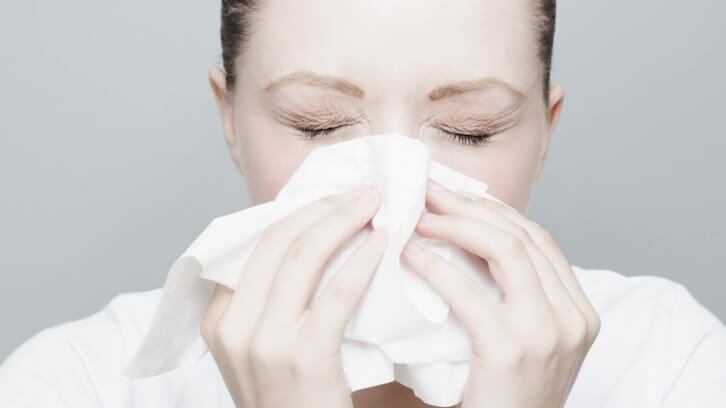Humans are experiencing decreased exposure to a range of microorganisms, which can explain the difference in disparity in allergic disorders between urban and rural communities and between developed and developing countries, the researchers wrote.
“It is crucial to closely monitor the changes in microbiome profiles and the reduction in biodiversity occurring in our environment because the entire microbiome represents the ‘true’ environment within which we live and coexist,” they explained. “Understanding and documenting the microbiome profiles in both humans and the environment are crucial to safeguard mutual beneficial microorganisms and mitigate the risk of potential global epidemics of common chronic inflammatory diseases."
Examining allergic disorders in migrants
Allergic conditions are higher in developed/high resourced countries and lower in developing/low resourced countries, according to the review. This is exemplified by migrants who move from developing to developed countries and experience a gradual increase in asthmatic and allergic symptoms.
“Immigrants from low-risk asthma countries show significant shifts in their immune responses and distinct microbiome profiles, reinforcing the role of environmental microbial exposure in the development of asthma and allergies,” the reviewers noted.
For example, in Australian-Chinese immigrants, the scientists observed a significant shift in the innate and adaptive immune response, suggesting that the increase in allergy in immigrants may result from particular taxa. After documenting differences in oropharyngeal microbiota, they found that nasal Staphylococcus pneumoniae may play a role in developing allergic conditions in Chinese immigrants in a Western environment.
Additionally, Chinese immigrants in Australia exhibited a change in genome-wide methylation and gene expression. The researchers surmised that the interaction between western environments and genes has underlying epigenome-microbiome mechanisms.
“The gut microbiome's influence on epigenetic modifications is a potential mechanism that may impact human health and disease and studying this relationship in new immigrants will shed light on the development of common western diseases, such as asthma,” they wrote.
Hygiene hypothesis
Western societies may not have been designed for optimal human health. Humans were exposed and adapted to diverse microorganisms over 60 million years, a diversity that’s diminished with urbanization and industrialization.
The surge of western illnesses and the impact of conditions of the human microbiome has led experts to speculate about the role of the hygiene hypothesis, which states that early childhood exposure to specific microorganisms protects against allergies and strengthens the immune system.
“Human immune system, in the absence of the rich, complex, and regularly challenging microbial load it was developed for, misinterprets harmless substances (allergens), prompting a range of self-destructive diseases like autoimmune disorders and allergic diseases such as asthma and atopic eczema,” the researchers wrote. “This phenomenon is considered a major contributing factor to the high prevalence of these western diseases in developed countries as well as an increasing trend recently in developing countries.”
Prebiotics and postbiotics
When it comes to managing allergies, the review noted that clinical trials have shown that prebiotics and probiotics have limited effect but also acknowledged the intricate interplay among environmental microbial exposure, genetic predisposition and epigenetic factors in allergy development. The review concluded that more research is needed to determine whether biotics can aid in allergy prevention.
Additionally, fecal microbiota transplantation is considered a treatment for allergic disorders but has not shown great success in addressing them. According to the reviewers, there is still “a shortage of proven and reliable microbiome-based interventions that have been conclusively validated and incorporated into clinical practice to prevent allergic diseases.”
"Grasping the complex relationship between the microbiome and the Western environment in terms of human health is essential. Implementing findings on the use of prebiotics and probiotics for asthma and allergy prevention presents challenges," the researchers concluded.
"A greater emphasis on extensive and synchronized clinical trials is needed to pinpoint protective prebiotics and probiotics that can aid in allergy prevention. Alterations in the microbiome attributed to contemporary living conditions might offer insights, potentially playing a central role in addressing the rising occurrence of allergic diseases. Continued research in this area is vital to shape effective interventions."
Source: World Allergy Organization Journal
doi: doi.org/10.1016/j.waojou.2023.100857
“The influence of modern living conditions on the human microbiome and potential therapeutic opportunities for allergy prevention”
Authors: Guicheng Zhang and Peter Le Souëf

